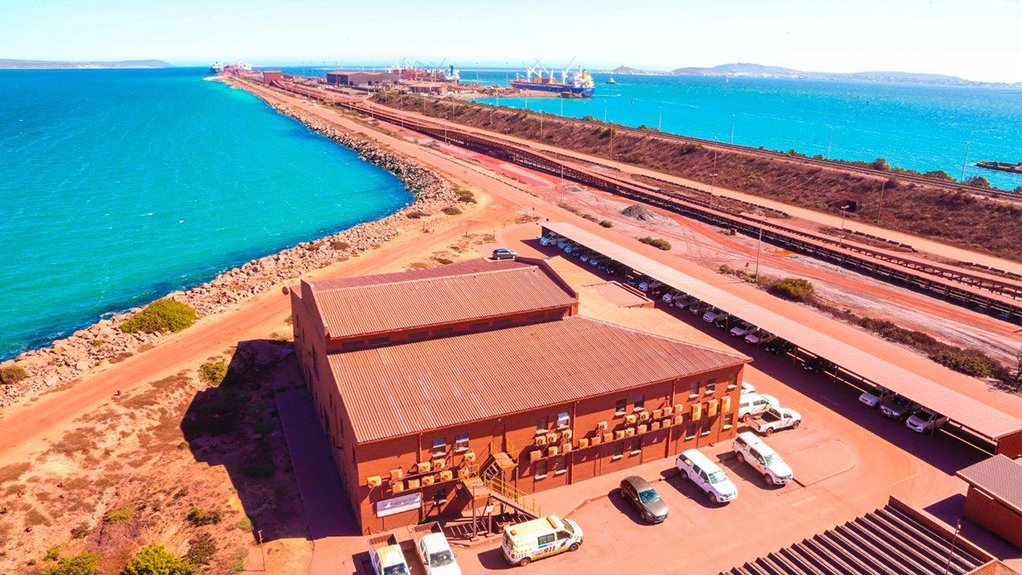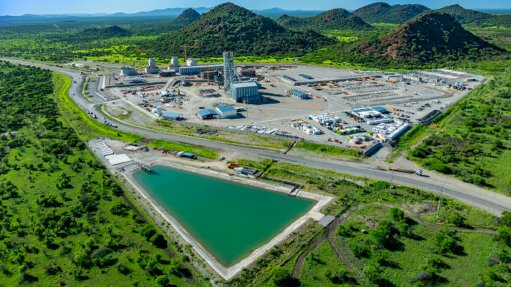Consortium to develop green corridor for shipping South African iron to Europe
A new consortium is set to explore the options for developing a maritime green corridor for the zero-emission shipping of iron-ore between South Africa and Europe, the Global Maritime Forum (GMF) announced on March 22.
This initiative is the first of its kind from Africa and is a step forward in the region’s efforts to decarbonise shipping.
Maritime green corridors – routes between major port hubs where zero-emission solutions are supported and demonstrated – have become recognised as one of the most important tools to aid industry and governments in the decarbonisation of the maritime sector.
The new consortium brings together diversified miner Anglo American, steel producer Tata Steel, as well as other industry stakeholders such as CMB, VUKA Marine, Freeport Saldanha and ENGIE. The consortium is convened by the GMF to assess how zero-emission shipping on the corridor can unlock new opportunities for South Africa’s sustainable development and contribute to a just transition to a zero-emission maritime ecosystem.
“It is fantastic to see this powerful industry consortium come together around a new green corridor with one side in South Africa, particularly as it sends a clear signal of industry action as we go into negotiations at the Marine Environment Protection Committee (MEPC) 80 in July.
"We hope this project will lay bare a viable shipping decarbonisation pathway towards real-world implementation, generating sustainable growth and business opportunities for South Africa and the region, with synergies for other sectors of the economy,” GMF CEO Johannah Christensen said.
The maritime supply chain consortium of iron-ore miners and shippers, the steel industry, ship owners, freeport operators and energy suppliers will explore full-scope concepts for the South Africa-European Union (EU) green corridor development. The work will look at bunkering and offtake arrangements, available green fuel supplies and financial and business model alternatives.
The consortium’s initiative to explore the development of the green corridor between South Africa and the EU builds on a report prepared by P4G and the Getting to Zero Coalition titled ‘Shipping’s Energy Transition: Strategic Opportunities in South Africa’. The report identified promising opportunities for South Africa to establish itself as a key player in the global transition to renewable forms of energy and zero-emission shipping.
Situated along busy international shipping routes, South Africa has the highest volumes of maritime traffic in Africa outside of the Mediterranean region, as well as one of the best-connected port systems on the continent that support the trade of valuable commodities. The development of the green corridor could help drive forward South Africa’s decarbonisation ambitions and serve a range of wider national and international objectives at the same time.
As the International Maritime Organisation prepares to revise its strategy for decarbonisation at the upcoming MEPC 80 meeting, the consortium’s initiative to explore the development of the green corridor between South Africa and Europe shows that the industry is preparing for a rapid shift to global zero-emission shipping.
“Cross-industry collaboration is the key to shaping a sustainable maritime industry. We are looking forward to joining other industry leaders in exploring pathways to zero-emission shipping of iron-ore between South Africa, where our Kumba mines produce high-quality iron-ore, and Europe, where many of our customers are located.
"An important step toward wider industry decarbonisation, this initiative also aligns with Anglo American’s ambition to reach carbon neutrality for our controlled ocean freight by 2040,” Anglo American Marketing Business CEO Peter Whitcutt said.
Tata Steel chief group shipping Ranjan Sinha said the company was committed to zero-carbon shipping and that its participation in the South Africa-Europe green corridor for iron-ore was a step in that direction.
“We believe in a just transition wherein the financial risk of a sustainable supply chain is spread across all stakeholders – the supplier, ports, vessel owners and buyers. The success of this corridor will likely accelerate the shipping industry’s journey towards decarbonised ocean transportation,” Sinha added.
CMB, meanwhile, has already built various ship types that run on hydrogen and is building dry bulk vessels powered by ammonia.
“We hope our record in the development of green ships will contribute to the success of the consortium and accelerate the deployment of low-carbon vessels on this important trade route,” CMB CEO Alexander Saverys said.
Article Enquiry
Email Article
Save Article
Feedback
To advertise email advertising@creamermedia.co.za or click here
Announcements
What's On
Subscribe to improve your user experience...
Option 1 (equivalent of R125 a month):
Receive a weekly copy of Creamer Media's Engineering News & Mining Weekly magazine
(print copy for those in South Africa and e-magazine for those outside of South Africa)
Receive daily email newsletters
Access to full search results
Access archive of magazine back copies
Access to Projects in Progress
Access to ONE Research Report of your choice in PDF format
Option 2 (equivalent of R375 a month):
All benefits from Option 1
PLUS
Access to Creamer Media's Research Channel Africa for ALL Research Reports, in PDF format, on various industrial and mining sectors
including Electricity; Water; Energy Transition; Hydrogen; Roads, Rail and Ports; Coal; Gold; Platinum; Battery Metals; etc.
Already a subscriber?
Forgotten your password?
Receive weekly copy of Creamer Media's Engineering News & Mining Weekly magazine (print copy for those in South Africa and e-magazine for those outside of South Africa)
➕
Recieve daily email newsletters
➕
Access to full search results
➕
Access archive of magazine back copies
➕
Access to Projects in Progress
➕
Access to ONE Research Report of your choice in PDF format
RESEARCH CHANNEL AFRICA
R4500 (equivalent of R375 a month)
SUBSCRIBEAll benefits from Option 1
➕
Access to Creamer Media's Research Channel Africa for ALL Research Reports on various industrial and mining sectors, in PDF format, including on:
Electricity
➕
Water
➕
Energy Transition
➕
Hydrogen
➕
Roads, Rail and Ports
➕
Coal
➕
Gold
➕
Platinum
➕
Battery Metals
➕
etc.
Receive all benefits from Option 1 or Option 2 delivered to numerous people at your company
➕
Multiple User names and Passwords for simultaneous log-ins
➕
Intranet integration access to all in your organisation



















